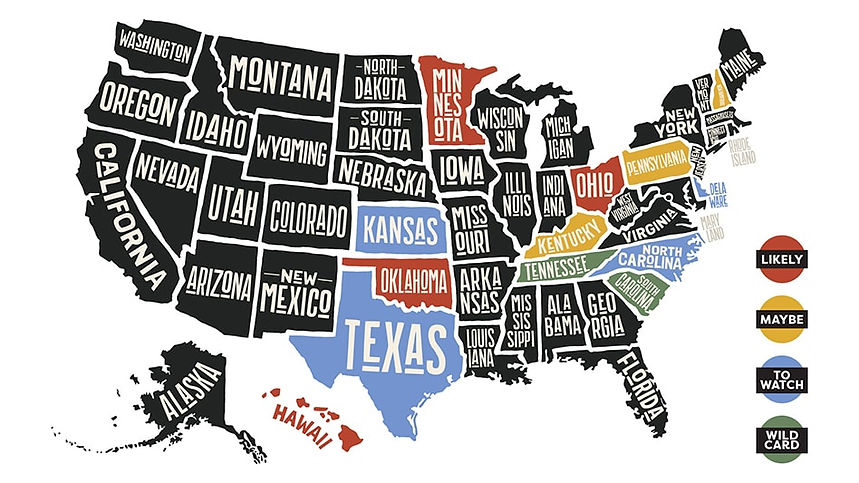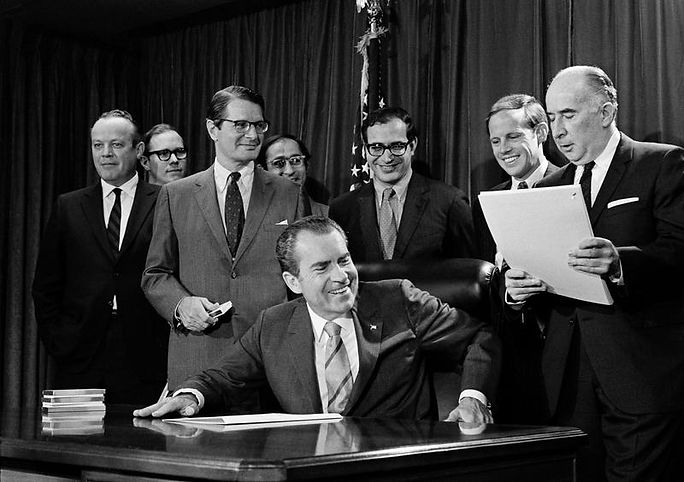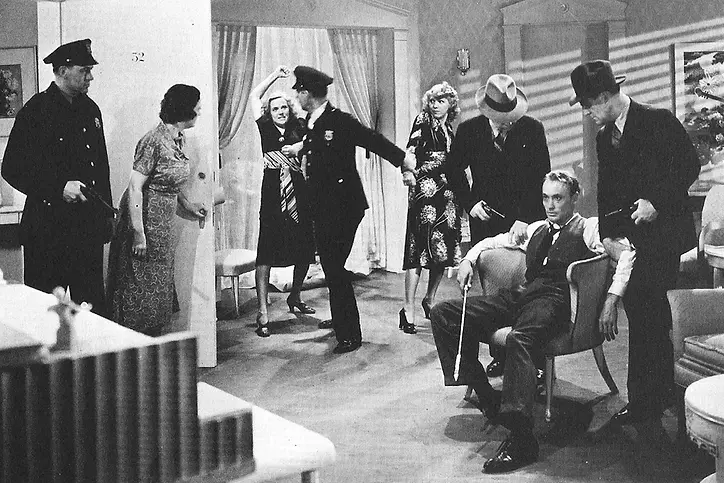
From My Cold Dead Hands!
Examining the Constitutionality of Criminalizing Cannabis
“The illegality of cannabis is outrageous, an impediment to full utilization of a drug which helps produce the serenity and insight, sensitivity and fellowship so desperately needed in this increasingly mad and dangerous world." – Dr. Carl Sagan
According to a pew research poll conducted in November 2022, 88% of U.S. adults say either that Marijuana should be legal for medical and recreational use by adults, or that it should be legal for medical use, exclusively. Think about that for a minute. Nine out of ten U.S. adults believe that there should be no legal penalty or restriction for an adult to consume a natural plant that has proven medicinal benefits, but the Federal Government insists that cannabis remain as a schedule 1 substance. Classifying cannabis as a schedule 1 substance effectively means it is viewed as having no medical benefits, is considered highly addictive and represents a significant threat to society. I (and 88% of U.S. adults) are arguing that none of those three assertions are true. Why should there be any penalties for consuming a substance that 88% of American adults think should be perfectly legal to consume?
Without a doubt, cannabis is less dangerous on a cellular level than alcohol, and is far less addictive than tobacco. As frustrating as this nexus between the federal government and the U.S. citizens has been, the winds of change are steadily blowing in the right direction. There are currently 37 states that allow the legal consumption of cannabis in one capacity or another.

Former President Jimmy Carter once said, “Penalties against possession of a drug should not be more damaging to an individual than the use of the drug itself.” Former President, Barack Obama, has said “The war on drugs has been an utter failure. We need to rethink and decriminalize our marijuana laws.” Here we have two former U.S. Presidents effectively saying the same thing, if the substance doesn’t inflict permanent and meaningful harm on the consumer, it shouldn’t lead to life-changing penalties or incarcerations for the adults who use it. This begs the obvious question: “Why is Cannabis considered illegal on a federal level if the majority of U.S. states have deemed it legal, how does that work?”
Under the Supremacy Clause of the US Constitution, federal law is generally considered to be the supreme law of the land. This means that if a federal law conflicts with a state law, the federal law generally takes precedence. Herein lies our problem, the Federal government is much more susceptible to lobbying efforts than state laws are. For reasons beyond my understanding, there are powerful lobbies who do not wish to see Cannabis legalized on a national level. There seems to me to be a purely cultural and social taboo infecting the ability of millions of Americans to access a natural medicinal product. So, we must understand the mechanisms and the logic behind them to allow our freedoms to be hindered in this way. We’ll start by looking at the Controlled Substances Act (CSA).

The federal government cites the Controlled Substances Act (CSA) as the basis for making cannabis illegal at the federal level. The CSA was passed by Congress in 1970 and is a federal law that regulates the manufacture, distribution, and possession of certain drugs, including marijuana. The CSA classifies marijuana as a Schedule I drug, which is the most restrictive category of drugs under the law. While the Constitution does not explicitly mention the CSA or marijuana, the federal government argues that its power to regulate drugs falls within its authority under the Commerce Clause of the Constitution, which gives Congress the power to regulate interstate commerce. However, many states have legalized marijuana for medical or recreational use in recent years, despite the federal prohibition. This has created a tension between state and federal law. We now know how the federal government is able to make their claim, but what are the arguments against this claim?
One argument against the federal government's ability to override state marijuana laws is based on the Tenth Amendment of the US Constitution, which reserves certain powers to the states. Some argue that the regulation of drugs falls within the states' police powers, which are powers that the Constitution does not explicitly grant to the federal government and are therefore reserved to the states. There is a very large problem with this approach, and that problem manifests with a group of legal intellectuals wearing cool black robes. The Supreme Court has generally upheld the federal government's power to regulate drugs under the Commerce Clause of the Constitution, which gives Congress the power to regulate interstate commerce. In historical cases, the Court has ruled that even purely intrastate activities that have a substantial effect on interstate commerce can be regulated by the federal government. And there it is, it all comes down to commerce, a concept which becomes all too obvious when you look into the 280E tax code. We’ll save the tax code detail for another post, but I’ll summarize it here as saying it is a codified set of rules that forbid businesses from deducting otherwise ordinary business expenses from Gross Margin. The 280E code applies to cannabis businesses because the business is considered to be trafficking a Schedule 1 substance, as defined by the CSA (there’s that pesky CSA again – you see the theme here?). Chief Justice John Marshall was quoted as once saying “The power to tax involves the power to destroy.” More on that later…. back to the issue of having our rights infringed.
Ok, deep breath, we now know the mechanisms and apparatuses that allow the federal government to treat cannabis as an illegal substance, but we still haven’t dug into the “why” of their claim. The government's argument for high potential for abuse is based on the fact that marijuana contains a psychoactive compound called delta-9-tetrahydrocannabinol (THC), which can produce a "high" or altered state of consciousness when consumed. The government also cites evidence that some people develop a dependence on marijuana and that heavy use of the drug can lead to impaired functioning and negative health outcomes. The argument that marijuana has no currently accepted medical use is based on the fact that the U.S. Food and Drug Administration (FDA) has not approved marijuana as a safe and effective drug for any medical condition. Finally, the government's argument that marijuana lacks accepted safety for use under medical supervision is based on concerns about the potential negative effects of marijuana use, particularly for certain populations such as pregnant women and adolescents. The government also cites the lack of standardized dosing and quality control for marijuana products as a safety concern.
So there we have it, we’ve heard the arguments made by the federal government’s legislatures, the FDA, and the Supreme Court, all three contributing to the current schedule 1 classification under the CSA, which allows for cannabis to deemed federally illegal. Have their arguments convinced you that cannabis should be off limits to the ~175 million U.S. citizens that feel they ought to have legal access to it? Do you see the same holes in their close-minded rationale that I see? Can you spot the theme of inter-institutional support from one another even if based on faulty logic and misguided concepts?

We may be stuck in this frustrating legal quagmire for some time, despite the American public’s obvious support for cannabis. It does seem that there is support for legalization on the blue side of the aisle more so than on the red side of the aisle. But the results all around have been disappointing up to this point. Well known democrats such as Chuck Schumer, Bernie Sanders and Cory Booker have publicly recommended positive steps for the legalization of cannabis, but there has been no real progress made to date on a federal level.
If you’ve made it this far in the article, I thank you for your time and consideration. But I also ask you to please consider the arguments made above and reflect on whether or not you agree with the Supreme Court, FDA and federal agencies in general. Are we doing the right thing by our national constituents? Are there unknown dangers of cannabis lurking in the darkness waiting to wreak havoc on American citizens? Or is this more of a cultural stigma that remains from a bygone era of less-informed societal biases that may have even had racial and class stigmas informing them? To me, the answer is crystal clear and I hold my position with steadfast conviction. Cannabis is not particularly dangerous, it is not highly addictive, and it provides far more benefits than harm for adult consumers. Cannabis is a net benefit to society in my opinion.
Please stay tuned for our update on the tax code and what it means for the cannabis industry, the municipalities in which cannabis businesses operate, and the patrons of the industry. Until next time, be well, be kind, and please look out for each other.
-- C.B. Swift
